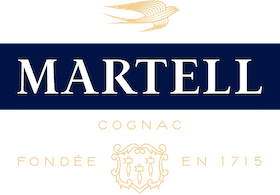How do you define cognac?

Is cognac a brandy, wine, liquor or spirit?
It’s impossible to think of France without thinking of its wine. After all, the country is the world’s third-biggest wine producer behind Italy and Spain.
Yet France has also staked a reputation for the amazing quality and variety of its home-grown spirits. From absinthe and armagnac, to benedictine, cointreau, chartreuse and calvados, French spirits are enjoyed in living rooms, bars and fine-dining establishments the world over. And perched atop the list of famous French spirits, is cognac.
But is cognac actually a spirit? Or is it a wine? A liquor? Or something else entirely? Let’s delve into some popular questions and misconceptions about the most delectable French export.

Is cognac the best brandy?
A brandy can be any spirit distilled from fermented fruit juice. By this definition cognac is definitely a brandy, produced as it is from fermented grape juice.
To many people however, Maison Martell included, cognac is in a class of its own when compared to compatriots in the brandy category.
The primary reason is that cognac production is strictly controlled, assuring a standard of quality not demanded for other brandies.
At Maison Martell, this includes double distillation in copper pot stills, and the maturation of eaux-de-vie in fine-grained oak barrels for at least two years.
The grapes used are a majority of the Ugni Blanc variety, and must be grown in one of six crus around the town of Cognac in south-west France: Borderies, Grande Champagne, Petite Champagne, Fins Bois, Bon Bois and Bois Ordinaire.
The small geographic footprint of the Cognac vineyards limits the quantity of cognac that can be produced every year. In fact in terms of global spirits sold by volume, cognac accounts for less than 1 percent. In the global world of brandies, this means cognac is a veritable rarity.
Finally, there is the question of heritage and savoir-faire. At Maison Martell, each bottle of cognac is the product of centuries of savoir-faire, handed down from nine generations of cellar masters. The same can seldom be assured with lesser brandies.
Is cognac a wine or liquor?
As cognac is made from grapes, does that mean cognac is a wine?
Or does the fact of its distillation designate cognac as a liquor (a spirit)?
While both are technically correct, cognac is more commonly referred to as a spirit. These are alcoholic drinks produced from a grain, fruit or vegetable-derived sugar that has been fermented and distilled. Other popular spirits include vodka (from potatoes or grains), bourbon (corn mash) and tequila (blue agave).
The famous French writer Victor Hugo was under no illusion. He described cognac as the ‘liquor of the gods’.
Is cognac a whisky?
While cognac is therefore a wine and a spirit, one thing certain is that cognac is not a type of whisky.
On a superficial level, the confusion is understandable. Both are amber-colour spirits, the product of generations of savoir-faire with a strong affinity to their region of production.
Yet the process to produce cognac and whisky is rather different. Where cognac is produced from grapes, whisky is generally produced from barley and corn.
There is also the question of origin. Where cognac is from a specific region of France, whisky can be produced all over the world, aside from Scotch that must be distilled and aged in Scotland.
Whisky is distilled twice, or sometimes three times, in pot or hybrid stills to achieve the required strength and purity. Generally speaking, it is then aged in used oak barrels for a minimum of three years, though most well-known whiskies are aged far longer.
Despite these differences, cognac and whisky are both exceptional products that can be enjoyed and savoured the world over.
Discover the difference between cognac and bourbon.
Please do not share with anyone under 18. Drink responsibly.












